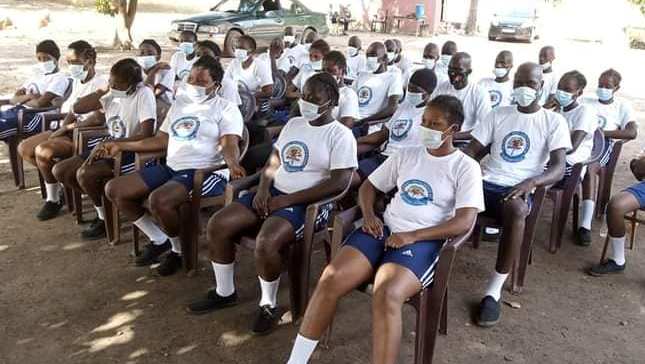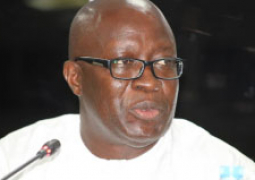
NYSS was established by government as a commitment to youth development and in response to the acute problem of unemployment among youths in the country. It targets youth who fall within the age bracket of 17-30 years and are susceptible to some form of societal woes such as unemployment, indiscipline, frustration, and drug abuse. NYSS aims to inculcate discipline, develop positive attitudes and provide market-relevant skills to youth.
The pandemic has not only resulted in some people contracting the virus, job losses, businesses and schools closure but also resulted in a lot of deaths in the country.
Mustapha Badjie, deputy director NYSS, said the pandemic did not only affect their recruitment but also affected them financially.
Mr. Badjie added that the pandemic seriously also affected their internal capacity leading to the reduction of their working hours, number of their employees and students.
He further said the number of students accommodated by certain workshops dropped due to the pandemic.
Deputy Director Badjie added that their decentralisation effort has not been spared by the pandemic.
Favour Mendy, a second year architectural draftsmanship student at NYSS, said schools’ closure affected her greatly because if not for the long closure of schools she would have gone far with her course now.
“We missed over six months and it’s like we will restart,” said Favour, who is still struggling to pay her tuition fee for the Ordinary National Diploma as a result of the pandemic.
Favour, who also engages in petty business, said it was not easy for her because the business she was holding on to by going round to people and sell also collapsed. According to her, people were not welcoming strangers into their homes due to the restrictions put in place by government.
Sarjo Cham, then head girl of NYSS’ 13th batch, said the pandemic impacted their education as they were introduced to online classes, a system of education that was not familiar to students.
Sarjo, who studied both physical fitness and electrical installation, said 35% of her colleagues struggled due to poor internet connection, lack of proper smart phones to surf the net, and lack of understanding on how to use online apps.
“On a personal experience, I missed a few tests because the phone I was using during the online classes could not connect to the internet,” she added, while describing the experience as frustrating and tiring.
Ansumana Camara, a 13th batch student at NYSS, said the pandemic affected his studies as virtual classes were conducted, but he did not own a proper smart phone.
Mr. Camara, a welding and fabrication student added that he struggled with assignments because most of the time he had to borrow his friends’ phones to send his assignments to his lecturers.
He highlighted that business has not also been flowing as expected, adding that they also lost certain contracts as a result of the pandemic.
He called on government to support young people through NYSS, GTTI and other youth institutions to ensure young people desist from taking the ‘back-way’ (irregular migration) journey to Europe and stay in the country and contribute meaningfully towards its development.
Jacquelin S.M. Sylva, Finance & Admin manager at the National Youth Council (NYC), said the pandemic seriously affected young people who are into entrepreneurship, noting that this was because some of them purchased goods but before they could bring them into the country, the pandemic struck.
She added that another challenge was lack of stores to keep their goods, while those who had their goods in stores could not sell them and could not pay for the stores due to the closure of businesses by government.
However, she said NYSS’ decentralisation drive paid dividend and actually had mitigated some situations that the NYSS and NYC would have faced.
The first case of Covid-19 was reported on December 31, 2020 and the source of the outbreak linked to a wet market in Wuhan (Hubei province, China).
The Gambia’s Ministry of Health confirmed the country’s first case of coronavirus on Tuesday March 17, 2020.
As a precautionary measure, Gambian president Adama Barrow on the same day announced that all schools, including universities will be closed from Wednesday 18 March 2020 for 21 days. Additionally, all public gatherings, including open markets were suspended immediately for three weeks. All overseas travel by public officials was also cancelled to prevent further spread of the virus.
All flights in and out of The Gambia, apart from medical and air flight operations were suspended on March 23. The land border with Senegal was also closed except for essential supplies and security personnel. Restrictions were placed on public transport and passengers in private vehicles limited to no more than half capacity. Vehicles carrying commercial goods were also only allowed to have one passenger in the cabin.
As of 3rd September 2021, The Gambia had officially registered 328 covid-19 related deaths and 9,789 positive cases.
This story was produced with support from Journalists for Human Rights (JHR), through its Mobilising Media in the Fight Against COVID-19 in partnership with Mai-Media and The Point.




